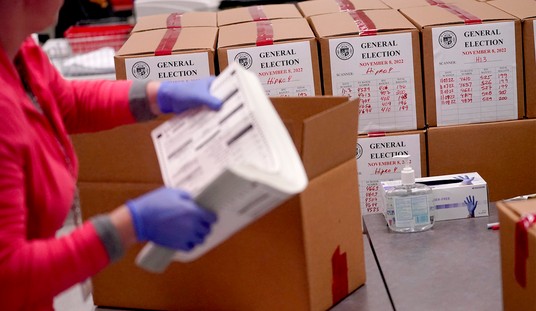The British separation from the European Union of June 23, 2016 doesn't precisely replicate the American declaration of independence from the British Empire on July 4, 1776. However, Britain's 21 century rebels and their 18 century American cousins share several provocative and encouraging traits, which Americans should laud this coming July 4.
Let's deal with the numbers first, and the names. Both numbers and names do relate to the rebellion.
In the United Kingdom's June 23 referendum, common sense Rebels whipped Remainers -- 52 percent to 48 percent. Yes, a narrow margin. However, it is a clear win obtained in a free and fair democratic referendum, where both sides had the opportunity to make the case for their preferred relationship between the UK, their still-sovereign nation, and the EU.
What the EU's current amalgamation actually constitutes is one of the problems that trouble the free people of Britain. It also troubles large pluralities (perhaps majorities) of the still-free citizens of France, Holland and Denmark.
Now for the names. Obviously, "common sense Rebels" is my preferred moniker. "Remainers" seems to be the unofficial name for pro-EU British citizens. "Leavers" got some traction in UK media for citizens favoring withdrawal. However, there were other names, many of them ugly, snarky, rude and, as a result, politically stupid. Here's a sample: racists, bigots, xenophobes. I didn't see uneducated rubes but you get the drift. There was an implicit class stigmatization, with elites deriding the ignorant peasants, much like Brit nobility used to disdain...commoners.
When Prime Minister David Cameron, a Remainer, said before the election "I don't think Britain, at the end, is a quitter, I think we stay and fight," anti-EU British voters --particularly older voters -- thought he was calling them Quitters.
Cameron will soon resign as Prime Minister. He will no longer run...The House of Commons.
Recommended
The numbers matter because they quantify the democratic decision British democratic rebels forced on an EU bureaucratic complex that increasingly operates as distant, arbitrary and autocratic.
The question of what it is brings us back to names. The European Economic Community, the Common Market which preceded the EU, was comprehensible. Eliminating trade barriers would spur economic growth. Common economic interests would diminish the likelihood of intra-European wars. What a jolly concept, one British voters could fully support.
In 2016, many still-free European are not quite sure what the EU is. Is it a semi-state? If so, its semi-state has spawned a distant, arbitrary and increasingly autocratic mega-bureaucracy.
Perhaps EU 2016 is best described as an Entity whose leaders -- Entity Elites -- insistently call for "more Europe."
However, still-free European citizens wonder whose More Europe the bureaucrats are building? At the moment the More Europe they've configured fails to stem waves of non-assimilating immigrants. In fact, More Europe appears to encourage non-assimilation.
This becomes a security issue, one of physical security and political security. It is an issue few Entity Elites grasp. Dutchman Pim Fortuyn, a gay sociology professor, raised this difficult question in the 1990s. He acknowledged his question was difficult, but said it was also important. However, media instantly portrayed Fortuyn, the very definition of a European liberal, as a racist populist. Totally wrong, he said. He valued hard won democratic freedoms. Fortuyn said his identity -- a free-thinking Dutch intellectual, who happened to be gay -- had value and deserved protection. However, devout Muslim immigrants to Holland demanded that he surrender his freedom. Their religious values took precedence. Fortuyn argued that the immigrants came to Holland. They were anti-democratic religious zealots who were autocratically imposing their identity on him. He chose to resist. Fortuyn was assassinated in 2002 by a radical environmentalist.
Maintaining British political and cultural values -- British freedom -- played a role in the June rebellion. So did the perceived autocratic isolation of Entity Elites who disdain genuine political debate (a definite echo of America's 1776 rebellion).
Functionally, Britain's common sense Rebels knew acceding to "more Europe" simply gave Entity Elites more power. Entity Elites were empire building, and the Rebels were determined to stop it. Better to give Entity Elites a kiss-off now than fight a guerrilla war against fully empowered Empire Elites.

























Join the conversation as a VIP Member